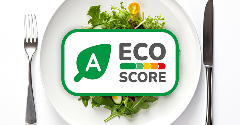News
EFSA publishes nutrient profiling advice for front-of-pack labelling
20 Apr 2022The European Food Safety Authority (EFSA) has published its scientific advice intended to inform how nutrition information is presented on the front of food packaging, including potential restrictions on health claims.
In line with its draft opinion published in January 2022, EFSA found that European intakes of energy, saturated fats, sodium and added sugars were too high, while potassium and dietary fibre intakes were too low among most European adult populations. It has also identified iodine, folate, iron, calcium and vitamin D as lacking among certain sub-groups. The findings are intended to form the basis of new rules on nutrition and health claims based on a food’s overall contribution to health. Foods that are high in saturated fat, energy, salt or sugar might not be permitted to carry a health claim, for instance.

The opinion will also inform the development of a harmonised, mandatory front-of-pack nutrition labelling system. Current models include Nutri-Score in countries like France and Germany, and the Keyhole scheme in Nordic countries, while others use a traffic light approach.
Front-of-pack labelling, health claims – and other public health strategies
The European Commission asked EFSA to provide an opinion on front-of-pack nutrition labelling and which criteria should be used to restrict nutrition and health claims, but EFSA has stressed that it was not tasked with assessing any particular nutrient profiling model.
“It is up to public health authorities how to prioritise strategies for the prevention of chronic metabolic diseases, including obesity and cardiovascular diseases,” it said. “Options may include, for example, nutritional strategies and policy in EU Member States, nutrition-related campaigns, nutrition education at young ages on healthy diets, as well as front-of-pack labelling or the use of health claims on food. EFSA is not involved in these decisions.”
The Commission now intends to propose revised legislation on how nutrition information is presented to consumers before the end of the year as part of its Farm to Fork Strategy.
Considering dietary patterns, from Mediterranean to Nordic
Some industry sectors, such as olive oil producers and juice manufacturers, have argued that at-a-glance labels can be unfair to certain foods and drinks as they tend to oversimplify their role within an overall dietary pattern – and EFSA has attempted to answer these concerns in its final opinion.
“The Mediterranean-style diet pattern and the New Nordic diet-style pattern, also called Baltic Sea diet-style pattern, are mentioned as European dietary patterns associated with lower chronic disease risk while identifying food groups which have important roles in the diets of European populations and subgroups thereof, as requested by the Commission,” it said. “Olive oil is also addressed within this context with other oils and fats.”
The European Consumers’ Organisation, BEUC, has welcomed EFSA’s opinion, saying it supports mandatory labelling across the EU.
“BEUC strongly supports the setting of nutrient profiles for the use of nutrition and health claims which can be a powerful influence on consumers’ purchasing choices,” it said in a statement.
Related news

UK Government overhauls childhood obesity strategy
21 Nov 2025
The UK Government has announced a new package of measures designed to reverse the nation’s childhood obesity epidemic following the release of statistics revealing the scale of the crisis.
Read more
How younger consumers are redefining ingredient choices and rejecting brand loyalty
18 Nov 2025
Gen Z and millennial consumers’ preferences for transparency, functionality, and purpose are “redefining the very nature of consumption itself”, says SPINS.
Read more
New UPF standard hoped to offer consumers ‘coherence and clarity’
10 Nov 2025
Ingredients companies are being urged to enter “a new era of partnership and innovation” following the launch of the industry’s first non-UPF verification scheme.
Read more
Ingredient quantities mislabelled on popular protein bars, independent tests show
5 Nov 2025
Some popular protein bars contain more fat, carbs, and/or sugars than claimed on their labels, independent nutrition testing reveals.
Read more
Does promoting protein content push up plant-based sales?
27 Oct 2025
Promoting the protein content of meat-free products is a more effective sales strategy than adding carbon labels, a study of UK bakery chain Greggs suggests.
Read more
Supplement shoppers seek storytelling and science-backed suppliers
17 Oct 2025
Supplement consumers want specific health benefits that focus on prevention and personalisation, according to data from HealthFocus International.
Read more
Food fraud risks rise as brands fight economic and environmental headwinds
10 Oct 2025
Climate change, geopolitics, regulations, and demand for sustainable products are pushing up food fraud and adulteration risks, warns a world-leading food fraud expert.
Read more
The growing appeal of nutrient-dense food claims
2 Oct 2025
Nutrient-dense claims are rising as consumers reject the “empty calories” of UPFs in favour of products that provide meaningful nutrition with every calorie, Mintel data shows.
Read more
What does MAHA mean for the US nutraceutical industry?
30 Sep 2025
Industry associations have expressed mixed reactions to new policy directions on health and nutrition under the Make America Health Again (MAHA) banner.
Read more
Eco-Score labels improve consumer identification of sustainable foods
22 Sep 2025
The presence of a front-of-pack Eco-Score label improves consumers' accuracy in identifying sustainable food products from 52% to 72%, a study suggests.
Read more